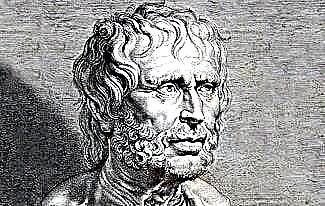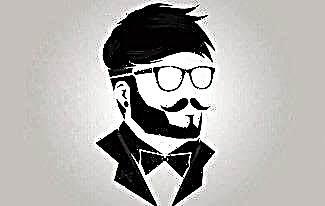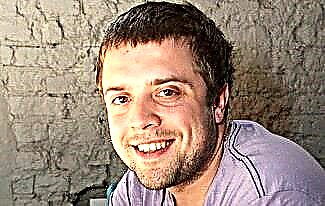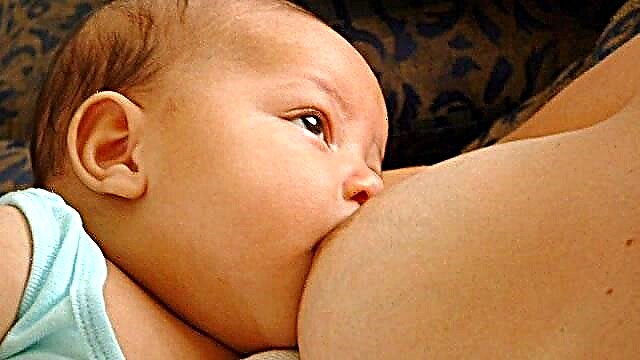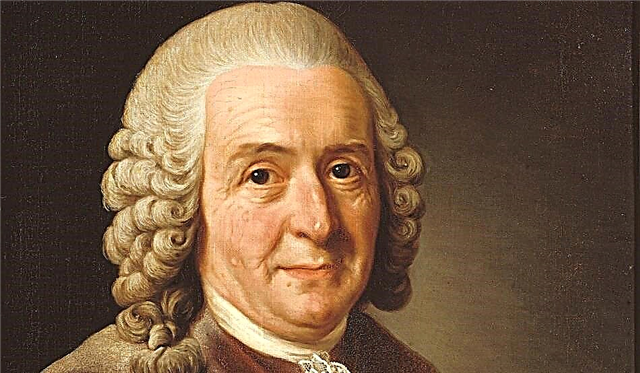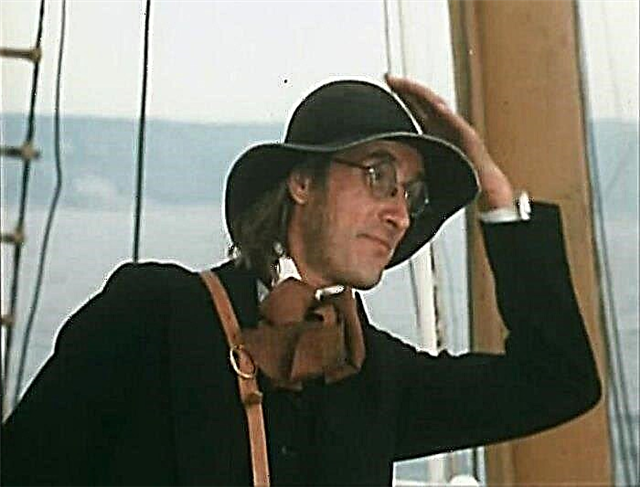In our history, to characterize any character as a “contradictory personality” means not to say absolutely nothing about him. History is so changeable that absolutely everything is contradictory in it. And those who yesterday sang Hosanna to the next leader, no matter how he was titled, after his death are ready to turn out, revealing the terrible truth about the past.
Leonid Brezhnev did not escape this fate. People who wrote memoirs for him and awarded him countless awards, praising him in all genres of art and at all events, quickly reorganized. It turned out that Brezhnev did not particularly like to work, and created almost a new cult of personality for himself, and begged for cars abroad as a gift, and put all relatives in warm places. In general, she dodged, grabbing the trough.

Brezhnev was certainly not a great ruler. This allowed him not only to climb the political Olympus, but also to stay there for 18 years. And in life, judging by the facts below, Leonid Ilyich was content with what he had, but he also tried not to let go of his own.
1. At the end of the last century, many media outlets and authors of memoirs tried to create the image of Leonid Brezhnev as a narrow-minded, not very literate, but crafty peasant who managed to get into the credibility of those in power. In fact, for a man born in 1906, Brezhnev received an excellent education. He graduated from a classical gymnasium, a land management technical school and a metallurgical institute. And this is in a country where a seven-year education was considered a great achievement.
2. Before meeting with Victoria Denisova, who became his wife in 1927, Brezhnev was far from so impressive. Everything was changed by the hairstyle invented by Victoria. With such a hairstyle, Leonid Ilyich passed all his life.

3. Due to the fact that many party leaders of the highest echelon married Jewish women, Victoria was also considered a representative of this nationality, since her appearance allowed.
4. Judging by the memoirs of contemporaries, Victoria Petrovna was the only person who reproached Brezhnev in person for illegally and undeservedly awarding him the Order of Victory. The awarding decree was canceled by Mikhail Gorbachev in 1989.
5. A year after graduating from the land survey and reclamation technical school, Brezhnev was sent by order to the Urals, where he quickly became deputy head of the regional land management department. In 1930, unknown events forced him to leave the Urals and go to Moscow to study at the institute. This can be attributed to a desire to study or to gain career prospects. There is one “but”: Leonid Brezhnev never came to the Sverdlovsk region for the rest of his life, even when he was the General Secretary. And the transition of an official of the regional level to students looked painfully sharp. And having moved from Moscow to Dneprodzerzhinsk, Leonid Ilyich did combine his studies with work as a fireman.
6. Officially, the future secretary general joined the All-Union Communist Party of Bolsheviks in 1931 in Dneprodzerzhinsk, although information surfaced about Brezhnev's recommendation to the party in the archives, signed by a man named Neputin.
7. Military service Brezhnev served after graduation from the institute in Transbaikalia, where in 1935 he received the rank of lieutenant.
8. Leonid Ilyich went through the war, as they say, “from bell to bell”. Most sources, however, say that since the beginning of the war he was engaged in the mobilization and evacuation of industry, but this is not so. In the pre-war years, party workers even at the level of Brezhnev (the third secretary of the regional party committee) knew in advance where and what position they would occupy. Brezhnev was supposed to become the head of the division's political department, but the war began so badly that already on June 28, 1941, he was appointed deputy head of the front political department. The war ended for Major General Brezhnev on May 12, 1945, when his 18th Army (with her Leonid Ilyich went through the whole war) finished off the remnants of the Germans in Czechoslovakia.

9. Leonid Brezhnev had to put on a uniform without a solemn occasion in 1953 - 1954, when he was appointed to leading positions in political bodies, first in the navy, and then in the Main Political Administration of the Soviet Army.
10. A very interesting story is connected with the rather unexpected transfer of Brezhnev to Kazakhstan in 1954. The first secretary of the Communist Party of Kazakhstan was A.P. Ponomarenko, unofficially believed to be a possible successor to Stalin, who had died the year before. N. Khrushchev, whose power was very fragile, sent Brezhnev as a spy for Ponomarenko. 10 years later, Brezhnev, on a personal example, showed how Khrushchev did not understand personnel and replaced Nikita Sergeevich with the ambassador of the general secretary.
11. For all his love for cars, including foreign ones, L. Brezhnev drove them only in an informal setting. “On performance,” as they say, he always drove Soviet cars. The exception is foreign visits.

12. Brezhnev became the first leader of the Soviet Union to officially congratulate citizens on the coming New Year. His speech was broadcast a few minutes before early 1972.
13. In general, Leonid Ilyich was very democratic. He could go down a couple of floors in a building on the Old Square (Central Committee of the CPSU) to the office of a newly appointed comrade or even to the referees. A variety of people were invited to joint celebrations in the family. And Brezhnev began his working day by calling his subordinates in Moscow and in the field, clarifying or consulting on various issues.
14. Brezhnev's life was seriously attempted at least once. In 1969, at the entrance to the Kremlin, a young man in a police uniform opened fire with two pistols at the car in which Brezhnev was supposed to go. The driver was killed, security officers were injured, the terrorist was detained. And the Secretary General was driving a different car on a different route. During foreign visits, local law enforcement officers received dozens of reports of possible assassination attempts, but the matter did not reach practical implementation.
15. The Brezhnev family lived in a large apartment for the 1970s in a house on Kutuzovsky. The house, of course, was different from the typical Soviet housing of those times, but there was no particular luxury. The family was served by a cleaning lady, a waitress and a cook. The guards were stationed at the entrance to the entrance. In the late 70s, a new, more spacious apartment in another house was prepared for the Brezhnevs, but Leonid Ilyich refused to move. But the Head of the Supreme Soviet of the RSFSR R. Khasbulatov 20 years later did not refuse.

16. The dacha was bigger. The three-story brick house was located on a large plot. There was a tennis court that was not played and billiards that was rarely played. But the pool was used often. The house was planned in an American style - common rooms downstairs, offices and bedrooms upstairs. It was in the bedroom on the third floor that L. Brezhnev passed away.
17. He was very fond of the General Secretary of the dacha in Lower Oreanda. The Crimean air and bathing had a beneficial effect on him. "Again my grandfather sailed to Turkey!" - Viktoria Petrovna commented on especially long heats. This dacha already had some signs of luxury, but it is worth considering that it also served as a place for state visits and work meetings.

18. German Chancellor Willy Brandt, who visited Leonid Ilyich in the Crimea, was invited to swim. The German politician did not come up with anything more suitable than to excuse the lack of swimming trunks. The chancellor had to swim in Brezhnev's spare swimming trunks.
19. This story is too similar to fiction, but it is repeated by the participants themselves and by the people who worked with Brezhnev. Leonid Ilyich watched the film “17 Moments of Spring”, first shown in 1973, only at the end of 1981, when his state was already quite far from adequate. The film was so captivated by the secretary general that he immediately proposed to confer the title of Hero of the Soviet Union on intelligence officer Maxim Isaev. And this is where the incredible part of the story begins. The sick general secretary came up with some idea, it happens. But healthy (as they probably still think about themselves) employees of the apparatus prepared decrees, and the actors and the film crew accepted the second awards for the film - the first time they were awarded immediately after the film's debut. Director Tatiana Lioznova told about this in her interview. It is very interesting whether Lioznova and her colleagues were outraged by Brezhnev's love for “trinkets”.
20. In March 1982, in Tashkent, near Leonid Ilyich and dozens of workers and accompanying persons, the forests around the unfinished plane collapsed. Brezhnev was badly hurt and broke his collarbone. The next day, he even managed to speak at a meeting with strong painkillers, but his collarbone did not heal until his death.

